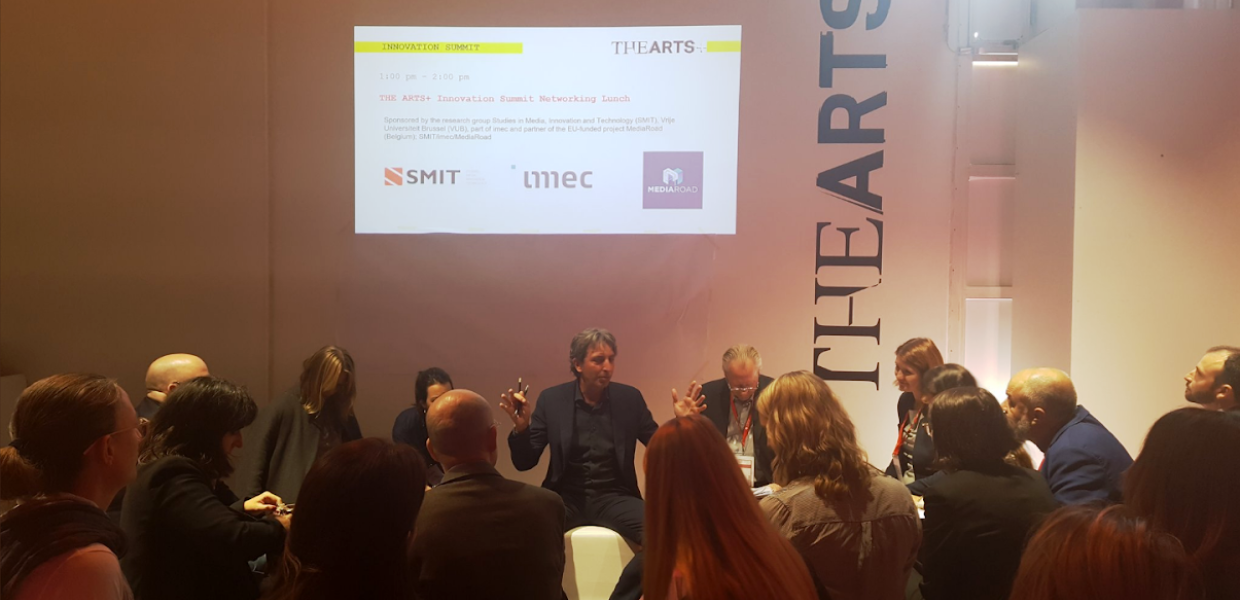For digital transformation, we need a business model transformation
Last week, Harry Verwayen, Executive Director of the Europeana Foundation, appeared at THE ARTS+ festival in Frankfurt to take part in visionary discussions about a new ecosystem for the future of culture as part of an #InnovationSummit.

- Title:
- Harry Verwayen at THE ARTS+ #InnovationSummit
- Creator:
- Milena Popova
- Date:
- 10/10/2018
- Institution:
- Europeana Foundation
- Country:
- The Netherlands
- Copyright:
- CC BY-SA
Here, following on from our interview about digital transformation with Professor Pier Luigi Sacco - also part of the #InnovationSummit panel - we hear how Harry thinks we should respond to the main barriers to tech-triggered innovation in the cultural heritage sector.
Let's think about culture differently
Harry zoomed in on one of the identified barriers - the importance of rethinking the value chains of cultural production. His take is that for too long we have borrowed semantics and structures from the business world, including the concept of a business model. This is a limiting frame because inherent in that borrowing is the idea that in business, returns should directly outweigh investments. And that’s not always the case with culture which should be evaluated by its long-term multiplier effects on society. He poses the question, ‘Surely the value of culture cannot be boiled down to a simple business deal?’
So, what then? Harry argues for a move towards an ‘impact model’ rather than a ‘business model’ as a more constructive frame.
He says, ‘Cultural heritage significantly contributes to tourism, to education and in a wider sense, identity, social cohesion and a variety of behavioural changes that are highly valued by our society.’ This line of thinking is increasingly adopted in policy circles, says Harry, for example, in the New Agenda for Culture.
'Europe needs to continue to deepen its investments in culture and innovation so that we can support the so-called digital transformation on our own terms.'
Find out more about Harry's vision of the future for culture, see his interview on the THE ARTS+ festival blog: WHEN WE BUILD STANDARDS TOGETHER, WE CAN CREATE DATA THAT FLOWS ON THE WEB, WHATEVER THE PLATFORM OR THE SYSTEM.


